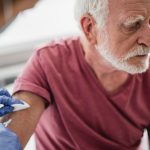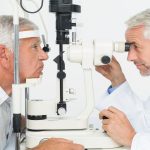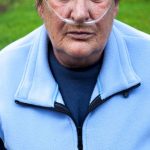
People in nursing homes have been suffering in isolation during the coronavirus pandemic, with their institutions in constant lockdown to prevent potentially fatal outbreaks. Now that they’re some of the first in line to receive COVID-19 vaccinations, it would be natural for nursing home residents to expect that visits from friends and family will soon resume. That might not happen, though. Uneven vaccination rates and unknowns related to the vaccines could mean that folks in nursing homes will have to remain isolated for a while longer, experts said. “It’s going to be a while before there are enough people immunized to really start to see a reduction in risk,” said Dr. Chris Beyrer, a professor of public health and human rights with the Johns Hopkins Bloomberg School of Public Health, in Baltimore. “There’s going to be this challenging period where we won’t have enough vaccine and we won’t have enough people immunized.” There’s a reason for caution, and it’s the same reason why nursing home residents and workers gained a place in the first wave of vaccinations. People in long-term care facilities have accounted for 40% of all COVID-19 deaths in the United States, even though they represent only 6% of overall infections, according to the U.S. Centers for Disease Control and Prevention. In addition, nearly one in five nursing home residents who contract COVID-19… read on > read on >














